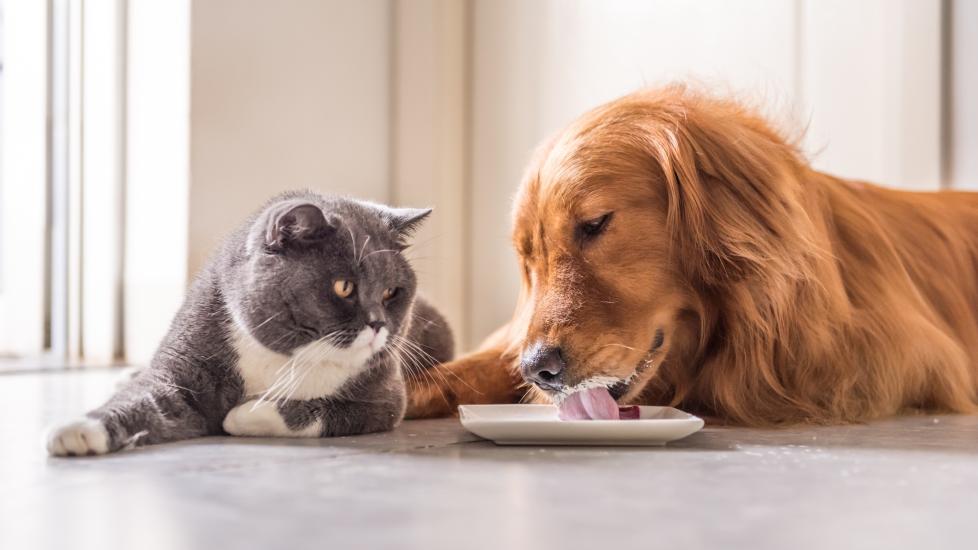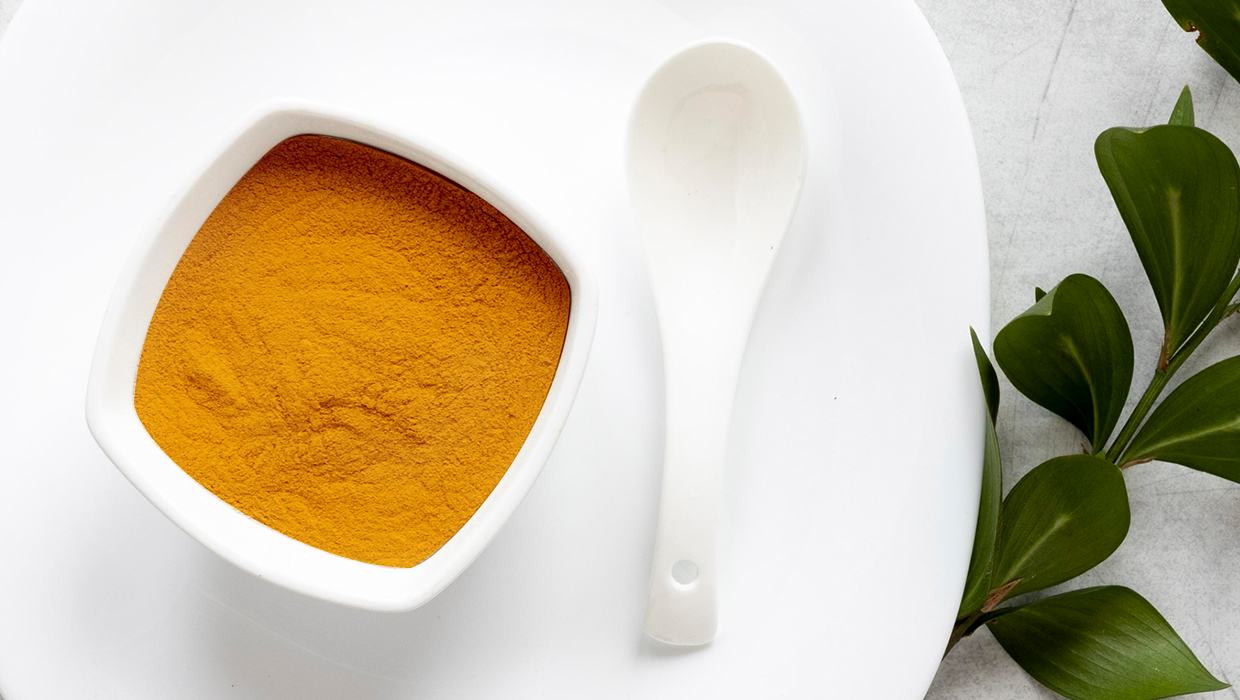As pet owners become more inclined to use natural supplements to maintain the well-being of their pets, Coenzyme Q10 (CoQ10) powder is proving to be a strong contender as a possible dog and cat supplement for maintaining cardiovascular function, cellular energy, and immune function. But does CoQ10 actually work in pets-and more importantly, is it safe for use in pets?
This article discusses the uses, safety, dosage, and scientific rationale of CoQ10 powder in pet care, so that you can make the most informed decisions possible about supplementing your cat's or dog's diet.

What is Coenzyme Q10?
Coenzyme Q10, also called ubiquinone, is a vitamin-like compound present in all cells of the body. It is required for:
Mitochondrial ATP synthesis
Antioxidant defense, combating toxic free radicals
Cell repair and metabolism
CoQ10 is also made naturally in the body, though in decreasing amounts with age, illness, or oxidative stress-causing exhaustion, cardiovascular discomfort, and decreased immune function.

Is CoQ10 Safe to Use in Cats and Dogs?
Yes, it is safe to give CoQ10 to dogs and cats at moderate doses. It is:
Non-toxic and usually well-tolerated
Exists in forms ubiquinone (oxidized) and ubiquinol (reduced)
Recommended by veterinarians for application in cardiac disease, age-associated illnesses, and immune deficiencies
Uncontrolled observation and clinical trials have proven that no side effects of animal supplementation with CoQ10 exist, even in extended durations.

Uses of Coenzyme Q10 Powder in Canine Health
1. Improvement in Heart Function
Among the best researched uses of CoQ10 is in heart function. In canines particularly, CoQ10 can:
- Enhance energy production in heart muscle cells
- Assist dogs with dilated cardiomyopathy (DCM) or congestive heart failure (CHF)
- Lessen signs of fatigue, cough, and exercise intolerance
Research Insight: In a trial published in the Journal of Veterinary Cardiology (2007), CoQ10 supplemented heart disease dogs exhibited less distress and enhanced quality of life.
2. Sustains Brain Function in Senior Pets
Mitochondrial and mental function may decline in senior pets. CoQ10 assists:
- Protect neurons from oxidative damage
- Sustains memory, alertness, and behavior in aging cats and dogs
- Delays neurological decline associated with age
It is commonly supplemented in older dog food and dog supplements utilized in combating canine cognitive dysfunction (doggy dementia).
3. Provides Energy and Cellular Health Boost
Since CoQ10 is the key player in mitochondrial energy production, it assists pets with:
- Recovering from illness or surgery
- Supports muscle mass and endurance
- Opposes fatigue secondary to aging or chronic disease
Hypothyroidism, liver dysfunction, or drug-abusing animals (e.g., statins or beta-blockers) will likely be low in natural levels of CoQ10 and can be helped by supplementation.
4. Offers Enhanced Antioxidant and Anti-Inflammatory Benefits
CoQ10 is a very potent lipid-soluble antioxidant that:
- Reduces free radical injury to tissues and organs
- Maintains joint health by inhibiting inflammation
- Enhances the immune system in immunocompromised animals
It may also be synergistically blended with other antioxidant supplements such as vitamin E, selenium, and omega-3 fatty acids.

General Use of CoQ10 in Animals
| Use Case | Species | Purpose |
|---|---|---|
| Heart failure (DCM, CHF) | Dogs | Supports heart muscle energy and function |
| Senior dog cognitive support | Dogs | Reduces mental decline, improves alertness |
| Chronic fatigue or low stamina | Dogs/Cats | Enhances energy metabolism and endurance |
| Liver disease or hypothyroidism | Dogs/Cats | Restores depleted CoQ10 levels |
| Post-operative recovery | Dogs/Cats | Speeds healing and cellular repair |
| Immune health | Dogs/Cats | Strengthens natural defense against infections and disease |

CoQ10 Powder vs Other Forms: What's Best?
There are various forms of CoQ10, and they are:
Powder – Easy to add to home-prepared meals or treats
Capsules or softgels – Most commonly utilized in pet supplements
Ubiquinol – Active, more bioavailable form (for elderly pets)
Powdered CoQ10 is best for formulations that are tailored to a customer's needs and can be employed to strengthen foods so that weight-based and need-based dosage adjustment is convenient.

Dosage in Dogs and Cats
Dosage is on the per-weight basis based on your pet's condition and the type of CoQ10 taken:
General Guidelines (Ubiquinone type)
- Small dogs/cats (<10 kg): 30–50 mg per day
- Medium breeds (10–25 kg): 60–100 mg daily
- Large dogs (25+ kg): 100–200 mg daily
Note: Always refer to your veterinarian prior to supplementing, particularly if your animal is on medication or has disease diagnosis.

Side Effects and Precautions
CoQ10 is generally well tolerated and safe, yet does cause some animals to have mild problems including:
- Gastrointestinal upset (gas, diarrhea) when overdose occurs
- Interaction with anticoagulant drug (extremely unlikely)
Reducing risk:
- Start low and titrate upward
- Take with food to maximize bioavailability
- Use vet-accepted, pet-strength CoQ10 powders

What to Look for When Picking a High-Quality CoQ10 Powder for Pets
When selecting a CoQ10 supplement, make sure that:
- It is additive-free or artificially flavored and pet-safe
- It is manufactured by well-known companies with GMP or ISO certification
- It has a Certificate of Analysis (COA) that guarantees purity and potency
- It is packaged in light-resistant, moisture-proof containers
If for medical reasons (e.g., heart disease), utilize ubiquinol to allow greater absorption, particularly in elderly or sick animals.

Conclusion
Coenzyme Q10 powder is safe, very effective, and can be used in pets as long as it is used the right way. Its role as an enhancer of heart function, energy metabolism, and immune defense makes it a wonderful pet supplement regardless of life cycle-particularly pets with chronic conditions, age-related decline, or high-performance demands.
By selecting the appropriate form and dosing, and purchasing from reputable quality suppliers, you can give your pet a healthier, longer, and happier life with the natural assistance of CoQ10.
References
Freeman, L. M., et al. (2007). The effects of dietary Coenzyme Q10 supplementation in dogs with heart disease. Journal of Veterinary Cardiology, 9(1), 35–41.
Crane, F. L. (2001). Biochemical functions of Coenzyme Q10. Journal of the American College of Nutrition, 20(6), 591–598.
Yamamoto, Y., & Yamashita, S. (1997). Effects of coenzyme Q10 on cardiac and muscular performance in dogs. Veterinary Therapeutics, 5(1), 43–50.
National Animal Supplement Council (NASC). (2023). CoQ10 in Companion Animal Health.










